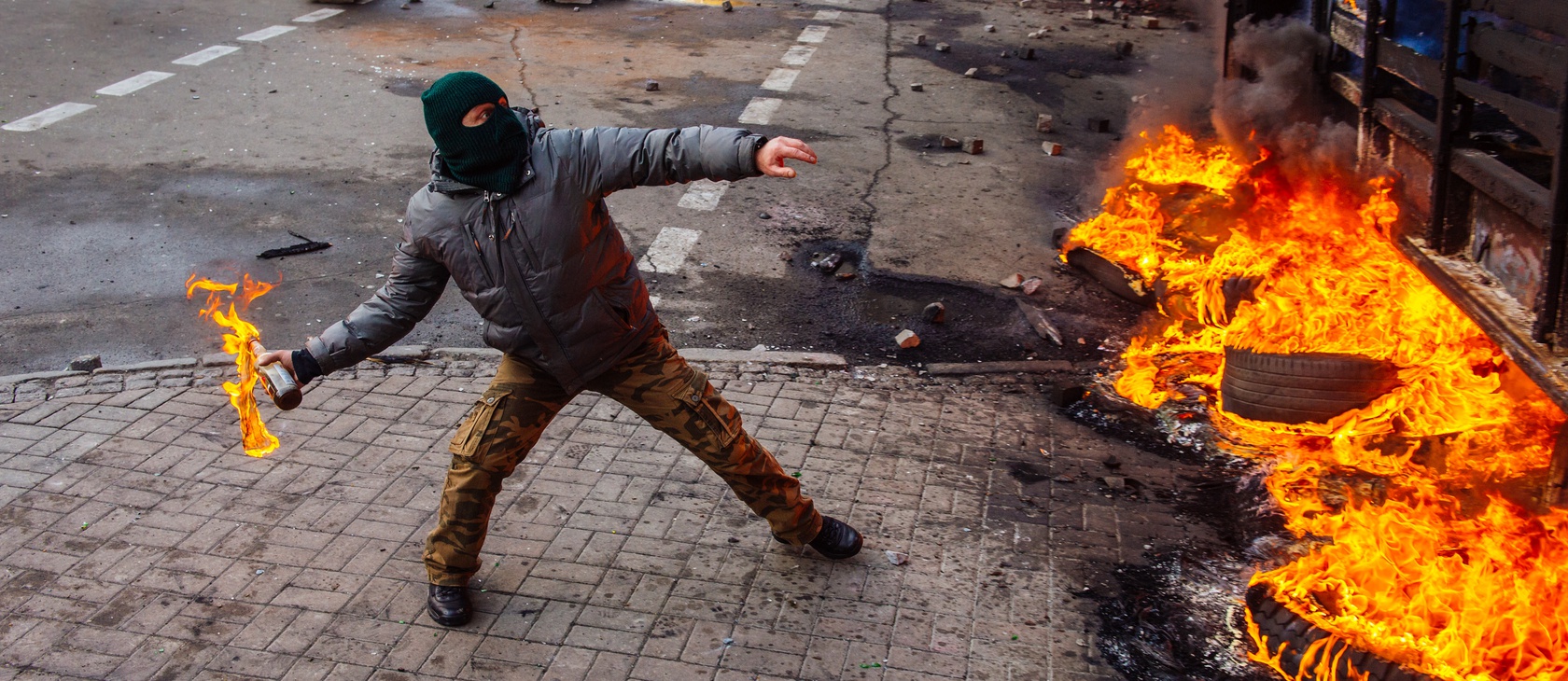Though political correctness seems to be on the wane after September 11, its second cousin – moral equivalence – has not disappeared. One occasionally still encounters attempts to minimize the horror of that day in calls to "understand" the plight of those whose cries for justice are championed by the masterminds of the day’s terrorism.
It is hard, we are then told, to know exactly where the line exists between terrorists and the brave would-be liberators of oppressed people: freedom fighters. Besides, many nations in the world have come into existence after lengthy struggles for liberation. Many pundits assert that the difference between a terrorist and a freedom fighter is purely a matter of perception. When our guy kills in battle, he’s a freedom fighter; when our enemy does, he is a terrorist. Similar acts get different labels depending on who is doing the labeling.
In making a judgment on freedom fighters versus terrorists, there is more at work than a "perception." I am convinced that there is a metaphysical difference, not just a perceptual one, between these two descriptors. It is helpful to get at the difference with an analogy, a consideration of the important difference between two of the seven deadly sins: greed and envy.
Though often lumped together and seen simply as the desire of one person or group to possess what another owns, greed and envy are not identical. Greed has to do with acquisition; we desperately want what another has. Theft is the culminating sinful act of greed. Envy, on the other hand, is not directed at some item we want that belongs to another, but at that other person or group. Its aim is destroying the happiness of others. Envy seeks not to acquire but to destroy, rejoicing in the misfortune of others. Vandalism and arson are two of the best examples of acts that have their roots in envy. While greed can be assuaged, envy can not. It is never satisfied until its object is destroyed.
Envy seeks not to acquire but to destroy, rejoicing in the misfortune of others.
Let’s apply this difference to terrorists and freedom fighters. The issue at hand is not whether fighters for a noble cause often act in reprehensible, cruel, and destructive ways. Such actions, however, have as their goal acquiring or reacquiring something valuable, something highly desired. This may be land, sovereignty, or political goals such as liberty or economic equality. Freedom fighters usually come from oppressed or marginalized groups that have been deprived of something important, such as a homeland, and their struggle is to obtain it or gain it back. In other words, if there is a sinful motive in the dreams and actions of a freedom fighter, it is likely the sin of greed.
This is not so with terrorism. Terrorists are less concerned with acquisition than they are with destruction. They are usually clever enough to cloak their motives by hijacking the popular will of an oppressed people, but their wrath is not appeased when they acquire what they say they want. For example, would the war against Israel be over once the Palestinians got their own homeland? Most likely it would not. The real goal of terrorist groups is not acquiring but destroying. Terrorism is thus qualitatively different from armed movement for freedom and liberty. Terrorism is not like greed; it is an extreme form of destructive envy.
The September 11 attacks on the World Trade Center and the Pentagon were acts of terrorism. Though the acts were ostensibly cries for help for the Palestinians, there was no strategic military purpose involved. The attack was pure destruction, an act designed for one end: terror.
Recognizing this difference will help us to refrain from trying to "understand" the terrorists or giving their acts any nobility or value. The willful destruction of the World Trade Center with the loss of over 4,000 people does not deserve such noble sentiment.
Envy can be neither sanctioned nor understood. It is a hateful attitude that, when played out, results in evil, destructive acts. It is a nihilistic poison that corrodes the soul of the one who envies and endangers the well-being of the envied. The same is true of terrorism. Terrorists will never be satisfied until the object of their hatred is destroyed.
Facing off with these nihilistic forces of terror is a frightening task, no doubt. Failing, however, to make appropriate moral distinctions about the true nature and motivation of our enemy strengthens the terrorist cause all the more. In this ongoing confrontation with evil, engaging in this type of moral equivocation is not something that our nation can afford to do.













